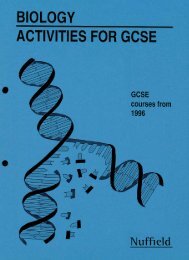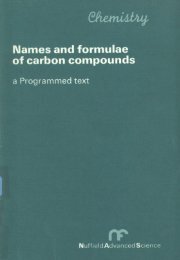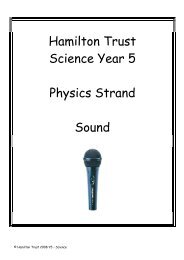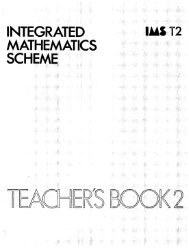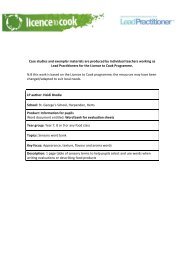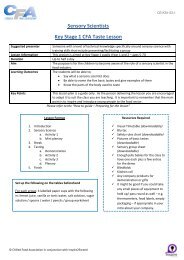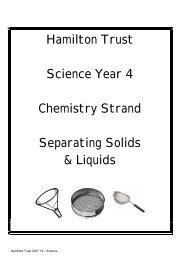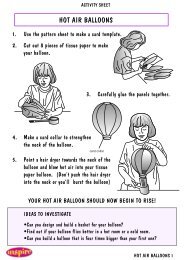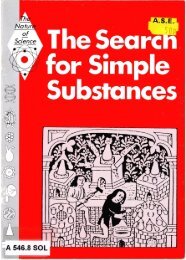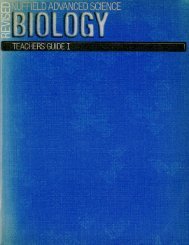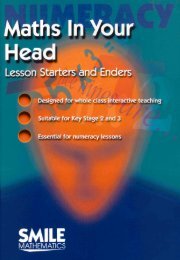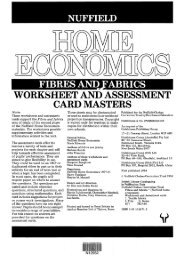history of mathematics - National STEM Centre
history of mathematics - National STEM Centre
history of mathematics - National STEM Centre
You also want an ePaper? Increase the reach of your titles
YUMPU automatically turns print PDFs into web optimized ePapers that Google loves.
7 / Towards a rigorous approach<br />
De Morgan was very keen to describe the number system in an abstract way, and to<br />
keep numbers themselves out <strong>of</strong> an axiomatic description <strong>of</strong> the number system.<br />
There was a major implication <strong>of</strong> this approach. All systems which obey the axioms<br />
also obey any rules derived from the axioms. This is true <strong>of</strong> the real and complex<br />
numbers, both <strong>of</strong> which satisfy the axioms. However, Hamilton was inventing an<br />
extension (which he called quaternions) <strong>of</strong> complex numbers. You will see later that<br />
quaternions do not satisfy the same rules as numbers.<br />
Activity 11.7 Do all systems have the same axioms?<br />
Activity 11.8 Boolean algebra<br />
1 Check that De Morgan's view is correct at least as far as the real and complex<br />
numbers are concerned. That is, check that the axioms as specified in Activity 11.5,<br />
question la, for combining elements under + and x are the same for both the real<br />
and the complex number systems.<br />
2 Also, given any real number a, the axioms require you to be able to specify<br />
another number b such that a + b = 0.lfa^0, the axioms also require you to be<br />
able to specify another number c such that a x c = 1. If a is the complex number<br />
2 + i, find b and c.<br />
George Boole (1815-1864) had no formal mathematical education. He became a<br />
primary school teacher and during that time taught himself more <strong>mathematics</strong> and<br />
became interested in a debate over logic which was taking place. As a result, in<br />
1847 he published a short work on logic which was recognised by De Morgan as<br />
being revolutionary. Nevertheless it did not receive much recognition at the time<br />
although it probably enabled Boole to get a position teaching at Queen's College in<br />
Cork. Seven years later he produced the classic Investigation into the laws <strong>of</strong><br />
thought, which established the algebra <strong>of</strong> logic, or the algebra <strong>of</strong> sets, now known as<br />
Boolean algebra. In other words, Boole set up the rules by which the elements in his<br />
sets, or in his logic, might be combined.<br />
1 a Find out as much as you can about Boole and Boolean algebra and make<br />
notes as you do your research.<br />
b As you do your research, decide for yourself whether the elements <strong>of</strong> Boole's<br />
algebra satisfy the same rules <strong>of</strong> combination as the real numbers.<br />
c Use your notes to prepare and make a presentation to your fellow students on<br />
Boole and Boolean algebra. As part <strong>of</strong> your presentation, include your answer to<br />
part b. Remember that your fellow students may not know anything about axioms,<br />
so make your presentation in a way which is easy for them to understand.<br />
William Kingdon Clifford (1845-1879) was a graduate <strong>of</strong> Trinity College,<br />
Cambridge. He was renowned for his teaching, and for his ability to visualise<br />
143



